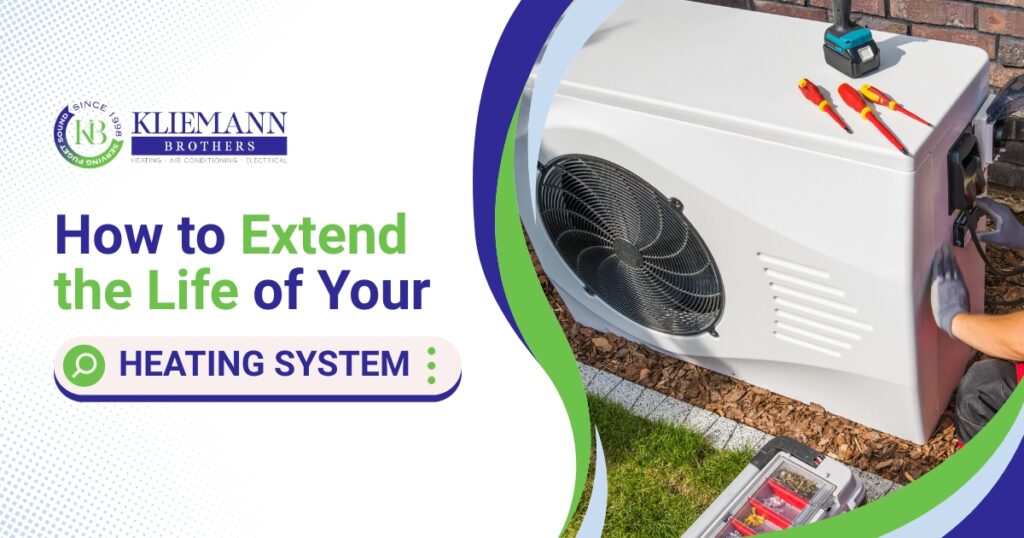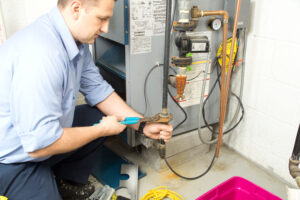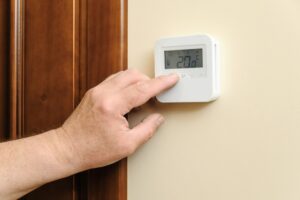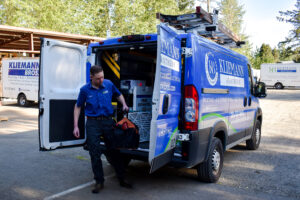How To Extend the Life of Your Heating System

In Tacoma and Puget Sound, a reliable heating system keeps your home comfortable during long, damp winters. With proactive maintenance, you can extend the life of your heating system and enjoy energy savings, improved comfort, and peace of mind. Learn how to maintain your furnace or heat pump and when to schedule professional heating maintenance with Kliemann Bros.

Why Heating System Maintenance Matters
Heating systems run for months at a time during the Puget Sound’s damp, chilly seasons. Without maintenance, dust buildup, clogged filters, and worn components gradually affect performance. Restricted airflow forces the blower motor to work harder, while neglected electrical parts and bearings develop imbalances that shorten service life. Neglected maintenance may allow worn-out parts or underlying inefficiencies to worsen performance, potentially contributing to sudden breakdowns or system failures.
Preventative heating maintenance supports system longevity by keeping each component clean and calibrated, and homeowners often notice more consistent temperatures and lower energy bills. Regular upkeep also preserves manufacturer warranties, since many require documented professional service.
With South Puget Sound’s humidity, routine service helps protect metal exchangers and coils from corrosion, stopping leaks before they spread and maintaining safer operation. Tune-ups also contribute to healthier indoor air quality by reducing dust and mildew buildup in the system.
Key Heating System Maintenance Tips
Consistent heating system upkeep supports better home heating efficiency, longevity, and performance between professional tune-ups. Try these tips to keep your heating system performing its best throughout the winter.
Replace Air Filters Regularly
Air filters protect your heating system from dust and debris. When they clog, they restrict airflow and force the blower motor to work harder. This strain causes strain on the entire system and accelerates wear on other components.
Check your air filter monthly, especially during peak heating season, and replace it as needed. Most standard air filters last between 30 and 90 days, but some may last longer before they accumulate too much dust.
Keep Vents and Ducts Clean
Air ducts and vents distribute heat throughout your home. When they collect dust, pet dander, and other debris, the buildup restricts airflow and requires your system to work harder to maintain temperature setpoints.
To keep ducts and vents clean between professional cleanings, reduce the amount of dust and debris throughout your home. Vacuum around vents regularly to prevent dust from collecting, and keep them clear of furniture, rugs, curtains, and other belongings.
Schedule Seasonal Tune-Ups
Scheduling annual professional HVAC tune-ups addresses wear from normal operation. A furnace maintenance checklist includes cleaning and testing the system, lubricating moving parts, and checking electrical and safety components. Technicians also inspect blower motors, calibrate thermostats, and assess overall efficiency.
Listen for Unusual Noises
Heating systems operate with steady, quiet hums, sometimes with an occasional click when a cycle starts. New or strange sounds indicate underlying issues that require further attention. Listen for:
- Banging or popping noises that suggest incomplete combustion in the heat exchanger
- Grinding or screeching sounds that point to worn bearings or loose components
- Whistling from restricted airflow
Basic upkeep, such as air filter replacements or cleaning dust, may resolve some sounds. Otherwise, address these sounds promptly with professional inspections to prevent further mechanical wear and potential system failure.
Inspect for Leaks and Rust
High humidity around your furnace or heat pump can cause corrosion, which eventually deteriorates metal and creates leaks in furnace gas lines, heat pump refrigerant lines and evaporator coils, and other components. These leaks impact efficiency and comfort, increase wear, and pose safety concerns in case of gas, carbon monoxide, or refrigerant leaks.
Keep Area Around Furnace Clear
Maintain at least three feet of clearance around your furnace for safety and airflow. Avoid storing flammable or bulky items near your furnace, such as paint, cleaning products, or boxes. Space around the unit also encourages airflow and ventilation.

Calibrate Thermostat
An inaccurate thermostat can disrupt your heating system’s normal cycles, causing overly short or long cycles, wearing out components, and increasing energy consumption. Check that your thermostat is placed away from drafts or heat sources and programmed for your schedule. Compare the thermostat temperature readings with a thermostat in the same area. If the thermostat shows a different reading, it likely needs calibration.
For a manual thermostat, turn off the HVAC system. Remove the thermostat cover, then locate and adjust the calibration screw or lever according to your owner’s manual instructions. Programmable or smart thermostats usually have built-in calibration functions that you can use by following instructions in your owner’s manual.
When To Schedule Professional Heating Maintenance
Scheduling professional HVAC maintenance once per year keeps your heating system efficient and reliable. Schedule services in the fall to prepare your furnace or heat pump for peak heating demand in the winter. Depending on usage or system type, some systems may require semi-annual maintenance.
A preventative visit identifies early warning signs, helping homeowners avoid mid-season breakdowns and maintain steady heating throughout Puget Sound’s colder months. Schedule your seasonal HVAC tune-up with Kliemann Bros to prepare your system for another dependable year of performance. PROComfort Maintenance Plan members receive priority service, discounts, and other benefits.
Know the Signs of a Failing System
Recognizing early warning signs helps prevent costly breakdowns. Watch for these signs that your heating system needs repair:
- Cold air from vents
- Higher utility bills without increased usage
- Uneven heating between rooms
- Short heating cycles
- Unusual odors, such as metallic or musty smells
- More visible dust in the air or around vents
- Strange sounds
If your system is aging or struggles to maintain indoor temperatures despite regular maintenance, it may be approaching the end of its operating life. Kliemann Bros provides expert guidance on when to replace a furnace or heat pump with energy-efficient recommendations.
Smart Upgrades To Prolong Your System’s Life
In addition to routine maintenance, upgrades can improve HVAC efficiency and heating system longevity:
- Smart thermostat: Thermostats with smart home technology learn household patterns and adjust temperatures automatically to conserve energy and reduce wear.
- Duct cleaning: Professional duct cleaning every few years removes debris and contaminants that accumulate in the system.
- Duct sealing: Professional duct sealing can improve overall efficiency by up to 20% or more and prevent unnecessary strain.
- Retrofits: Devices like vent dampers and intermittent ignition systems reduce energy loss in older furnaces.

Call Kliemann Bros for Expert Heating Help
Kliemann Bros helps homeowners increase furnace lifespan, efficiency, and performance with professional heating system inspections and preventative maintenance services. Contact us at Kliemann Bros today to schedule your heating system tune-up.

